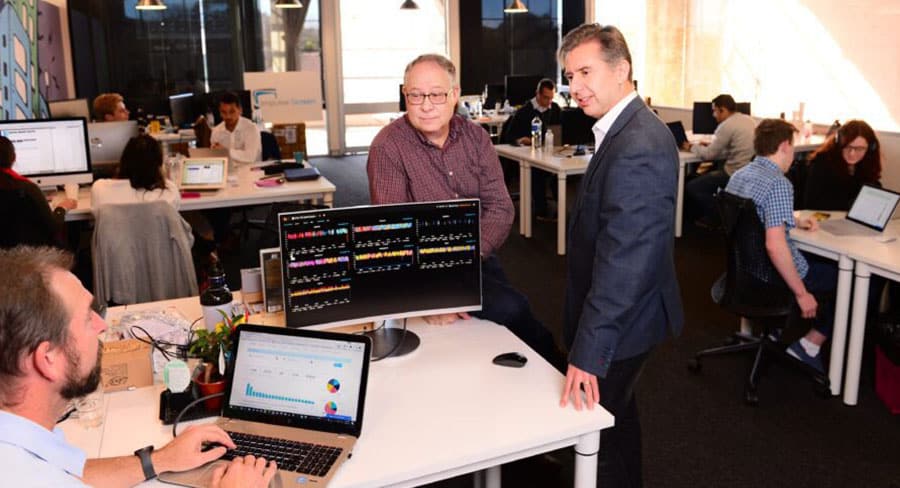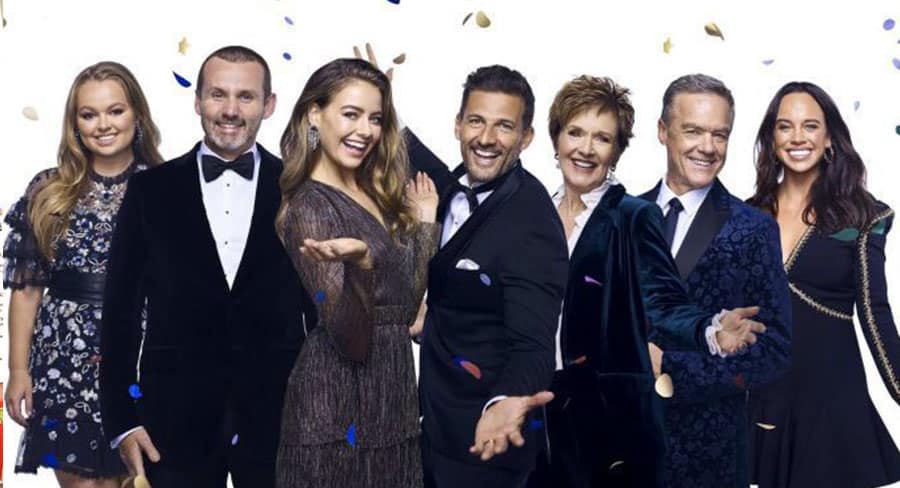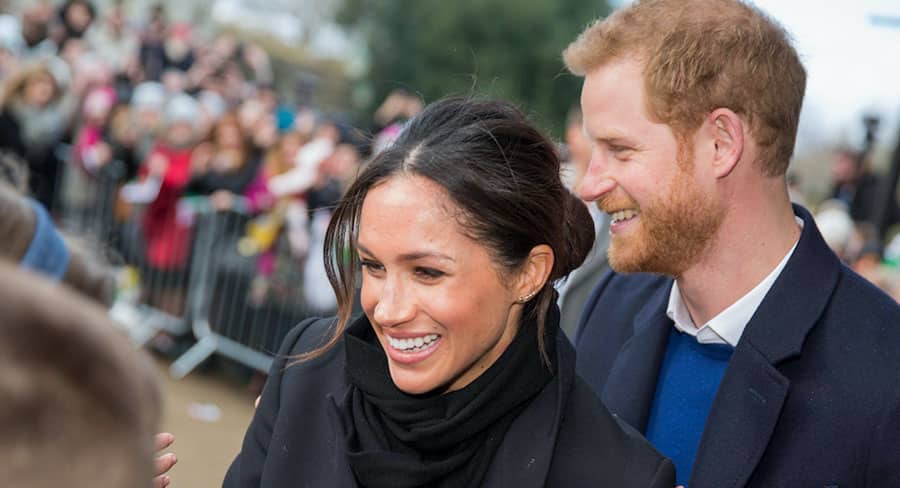Business of Media
Local publishers line up for Big Tech revenue boost
Australian media companies could share in hundreds of millions of dollars of revenue under codes of conduct which will force Facebook and Google to pay publishers for the use of their stories and content, reports The AFR’s Aaron Patrick, Max Mason and Yolanda Redrup.
Google and Facebook had roughly $6 billion of the online advertising market in 2018, according to the Australian Competition and Consumer Commission.
A new mandatory code of conduct will include sharing of advertising revenue generated from advertising against news content on Facebook and Google’s sites, as well as data sharing.
Nine chief executive Hugh Marks would not be drawn on the quantum of revenue his company or the industry will be looking to get in the code, but noted small percentages would be material.
“With roughly $6 billion of revenue in this market, if you’re starting to look at 1 per cent, that would be $60 million. Obviously we will be arguing for higher than the platforms will be willing to suggest,” he said.
Seven West Media chief executive James Warburton said the media industry was dependent on the value of its content being recognised by all users – foreign digital platforms in particular.
“In the past month our news content alone has reached millions of Australians – it’s only right when this is accessed via third-party platforms its creators are fairly compensated,” he said.
News Brands
ABC defends its reporting on Cardinal George Pell
The ABC has released a long statement documenting its history of reporting on Cardinal George Pell.
The statement begins:
The ABC has always acted in the public interest in reporting on the police investigation into Cardinal George Pell and in investigating other allegations made against him. The ABC firmly rejects claims that it pursued a “witch hunt” against Cardinal Pell, that it engaged in “vigilante” journalism or that it’s coverage was one-sided or unfair.
At every stage of this story the ABC has presented a wide range of opinions on the case. At every stage of the court process the ABC has reported the legal proceedings objectively, accurately and impartially. In discussions and analysis it has always sought a full range of perspectives on related issues.
The ABC has always sought responses from Cardinal Pell himself to specific allegations during its coverage of the allegations of sexual misconduct against him and the subsequent court actions. It has also sought and presented the opinions of his supporters as well as independent experts on the various issues that have arisen.
The first allegations against Cardinal Pell surfaced in 2002 and were considered serious enough for him to step aside while a Church-initiated investigation was conducted. That inquiry concluded that the complainant was honest but that there was insufficient evidence to corroborate the claim.
In 2016 Melbourne’s Herald Sun revealed that a police investigation had begun in 2013 into further allegations against Cardinal Pell.
Neither of those allegations was originally revealed or encouraged in any way by the ABC. However, considering the very high profile and influence of the Cardinal, and his pivotal role in managing sex abuse allegations within the Catholic Church, it was entirely appropriate for the ABC to investigate the allegations.
ABC on Dr Norman Swan: No conflict of interest with Tonic Media
The ABC has released a statement about possible conflict of interest Dr Norman Swan may have holding a position with Tonic Media. The statement comes after a report in The Weekend Australian headlined “Cash for coronavirus: ABC ‘guru’ Norman Swan after money to turn spin doctor”.
Dr Norman Swan is a highly experienced ABC journalist and health professional who offers informed insights and analysis as part of the ABC’s coverage of COVID-19.
Dr Swan is doing invaluable work briefing the community on the implications of COVID-19 and helping answer people’s questions, including in the Coronacast podcast.
This has included setting out scenarios on what might occur as a result of the pandemic given various different assumptions, primarily using international information because Australian data have not been available. This work has been to the highest scientific standard.
Dr Swan has worked with the ABC since 1982. His contract allows him to undertake external work. All such external work is subject to approval to ensure it does not create any conflicts with the individual’s work for the ABC.
As has already been publicly disclosed in past years, Dr Swan’s external work includes Tonic Health Media, which produces fact-based, independent medical content that streams on video screens in GP waiting rooms and is used by Aboriginal medical services. Dr Swan is a minority shareholder and sits on the board.
Any accusation of a conflict of interest between Dr Swan’s contribution to the community about COVID-19 as a journalist and the work of Tonic Health Media is unfounded.
Clooney calls on Australia to adopt new laws for press freedom
High-profile human rights lawyer Amal Clooney is lobbying the Australian government to adopt new laws giving it the power to seize the assets of human rights offenders and ban them from entering the country, reports Nine Publishing’s Rob Harris.
The Lebanese-British barrister is leading an international panel of experts on press freedom calling on governments to use Magnitsky-style sanctions against human rights offenders regimes, including those that imprison, murder or intimidate journalists.
Clooney, the deputy chair of the High-Level of Legal Experts on Media Freedom, is set to appear via video link before Federal Parliament’s joint standing committee on foreign affairs, defence and trade next month, following her submission to the inquiry.
Harry & Meghan tell tabloids “no corroboration and zero engagement”
The Duke and Duchess of Sussex have told the British tabloid press that they are ceasing all co-operation because of “distorted, false or invasive” stories, reports Press Gazette.
The couple sent a letter to the editors of The Sun, the Daily Mail, the Daily Express and the Daily Mirror in which they said they will not “offer themselves up as currency for an economy of click bait and distortion”.
The pair said they are looking forward to working with “grassroots media, regional and local media, and young and up and coming journalists, to spotlight issues and causes that so desperately need acknowledging”.
What they won’t do is offer themselves up as “currency for an economy of clickbait and distortion”.
The shift means Harry and Meghan’s press team will not even answer calls from the papers.
Radio
ARN announces sale of iNC Digital Media to Impulse Screen Media
ARN has announced the sale of iNC Digital Media to Impulse Screen Media. iNC’s team will join the existing Impulse Screen Media team to leverage the Impulse technology, which uses artificial intelligence-powered data, automation and analytics to help clients create measurable, data-driven digital marketing campaigns. The merged entity will retain the iNC Digital Media name and branding.
ARN’s COO Michael Harvey said: “ARN is focusing on Defining Audio in Australia with our continuing investment in radio, music and podcasts. Over the past three years we have built iNC into a successful digital media and marketing agency, however the business no longer aligns with our core strategy. The opportunity has arisen to merge iNC with Impulse Screen Media to allow it to grow even further and together they represent a unique offering in market. We look forward to the iNC team’s ongoing success as part of Impulse Screen Media.”

Impulse Screen’s chairman James Scott said: “By bringing together iNC’s existing sales and operations team under Loan Morris‘ leadership with the Impulse technology platform, we can offer a unique, AI-based approach to our clients, enabling transparent marketing and media buying services. In this data-driven age we need to assist our clients to combine data, analytics and automation at scale as organisations are increasingly seeking to harness the power of their information for a competitive advantage and to identify opportunities for revenue growth and cost reduction.”
—
Photo: Impluse Screen Media chief technology officer James D’Arcy with MD Paul Garrity
Television
Television restart: Industry watching what Neighbours does next
Long-running soap opera Neighbours is about to go back into production following the COVID-19 shutdown – but it will be a very different environment on set, reports ABC’s Michaela Boland and Penny Timms.
There will be no kissing or holding hands, the cast and crew will be isolated into three distinct groups, and camera trickery will be used to make physically-distanced actors look more intimate.

“It’s going to look a bit odd,” said Chris Oliver-Taylor, the chief executive of Neighbours’ production company Fremantle Australia.
“[But] Neighbours is a show that can get away with it.
“We employ hundreds of staff who want to work and feel they can. It’s important we continue to produce a show that reaches millions of people in the UK and a significant audience in Australia.”
Neighbours is believed to be the first suspended TV drama to resume production in the English-speaking world.
The news has excited many in the Australian TV industry, which was devastated by the coronavirus crisis after productions were suspended.
There are hopes the Neighbours production plan will become something of a roadmap for other programs.
Oliver-Taylor said Neighbours would run out of episodes in mid-June if production did not resume.
John Edwards: Content quotas efficient way to create great Aussie TV
I produced huge hit shows like Police Rescue, The Secret Life of Us and Love My Way. But they only exist because of local content quotas, writes TV producer John Edwards in Guardian Australia.
I felt a terrible sense of dread last week, when the Australian government suspended local content quotas as part of its $54m rescue package for television, radio and regional publishers.
The communications minister, Paul Fletcher, announced on Wednesday that Australian content quotas for drama, children’s and documentary on free-to-air and subscription TV would be suspended for the rest of the year.
While this is hopefully temporary, the dread remains. Despite their wonderful efficiency in levelling the playing field and ensuring we maintain an on-screen cultural identity at an absolute minimal cost to the public purse, content quotas have never been popular in neoliberal thinking, and it is so hard to put the genie back into the bottle.
Sports Media
Peter V’landys: I don’t want Todd Greenberg’s job as NRL chief exec
When the axe finally fell on NRL chief executive Todd Greenberg, like we all knew it would, attention immediately turned to who would replace him, reports The Sydney Morning Herald’s Andrew Webster.
All eyes quickly focused on the man who swung the axe: ARL Commission chairman Peter V’landys, who has been touted as executive chairman long before COVID-19 trashed the 2020 season.
Chief commercial officer Andrew Abdo has been appointed interim chief executive, but many in rugby league have held a view for a long time that V’landys wants the top job.
“I’ve made that clear that I won’t do it,” he insisted when contacted by the Herald on Monday night. “I’m not interested in it and I’ve never been interested in doing it. I don’t think it’s appropriate: there needs to be a segregation between the board and management. I’ve always believed in proper corporate governance, so it would be hypocritical to do anything other than that.
Last Friday, he was frozen out of negotiations with V’landys, Nine Entertainment chief executive Hugh Marks and Foxtel boss Patrick Delany as they thrashed out a new broadcast deal for a revamped season and beyond.
When Marks refused to deal with him, culminating in that scorching statement from Nine on April 9 slamming the “mismanagement of the code over many years”, it was the last of the last straws.
Nine boss praises V’landys, confirms commitment to rugby league
Nine chief executive Hugh Marks says he is “very impressed” with his initial dealings with ARLC chairman Peter V’landys and wants to see the 16 clubs properly funded to ensure the NRL “has a great long-term future that warrants our investment in it”, reports The Sydney Morning Herald’s Adrian Proszenko.
Speaking for the first time about his discussions with the NRL, Marks told 2GB’s Ray Hadley that the network was committed to broadcasting the sport.
“One thing I want to see come out of this is that investment goes back into club footy. It’s the tribalism of rugby league that is its greatest strength. Investment in clubs, players and those communities has been underdone for some years and again that’s something I’m agitating to make sure is part of the recovery so we can see a sport that has a great long-term future that warrants our investment in it.”
Marks said his relationship with V’landys had gotten off to a promising start.
“Very impressed,” Marks said. “He’s a man who wants to get things done and he’s a man who is very good at cutting through a lot of noise, simplifying the issues at hand and looking for the right outcomes.”
AFL and Carlton at risk of losing millions due to Virgin’s insolvency
The AFL is hopeful its massive sponsorship deal with Virgin Australia will continue despite the airline being placed into voluntary administration after failed crisis talks, reports News Corp’s Jon Ralph.
The league has three years left on a five-year deal with Virgin signed in September 2018, with the beleaguered airline also Carlton’s co-major sponsor.
Virgin was unable to secure a bailout package from the Federal government in recent days after requesting a $1.4 billion support package given debts of $5 billion.
It means accounting firm Deloitte has been brought in to consider a restructuring package that could potentially see the company looking to come to arrangements with creditors.
The AFL’s deals with its corporate partners are worth tens of millions of dollars, with the league’s sponsorship with official gaming partner BetEasy worth $10 million a season.
